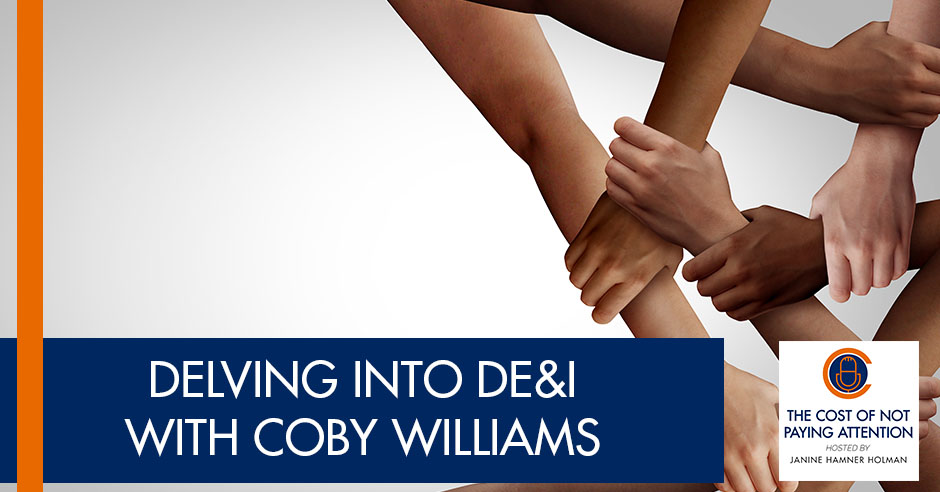
DE&I, which stands for Diversity, Equality, and Inclusivity, are verbs, not adjectives. Therefore, delving into DE&I must be action-oriented. Janine Hamner Holman’s guest in this episode is Coby Williams, the Principal Consultant at New Reach Community Consulting. Coby talks with Janine about how action requires momentum and conscious intention. His mission is to help organizations connect their causes to their communities. If you’re passionate about DE&I and expect outcomes from this work, you wouldn’t want to miss this episode. Enjoy!
GUEST: Coby Williams | LinkedIn |
HOST: Janine Hamner Holman | [email protected] | LinkedIn, Facebook, and Twitter | Subscribe to my Newsletter! Book me to Speak!
—
Listen to the podcast here:
Delving Into DE&I With Coby Williams
What am I paying attention to? The idea of work having a social impact. As some of you may know, I started my career as a grassroots community organizer a bazillion years ago in the 1980s working in the BedStuy Community of Brooklyn, New York, which was a rough and tumble place back then. There’s this idea of having work being connected to the larger world, having work be meaningful, and having work have an impact on society. That is something that is near and dear to my heart and brings me right into our guest for this episode.
Our guest is Coby Williams. He works in the field of public affairs and we may talk a little bit about what that means. He has been doing community engagement work for decades, really since he was a tween! All of this work that he does is to connect the community with what’s going on in the public sphere. Usually, that’s about what cities are doing or municipalities, governments, or sometimes also businesses. It’s helping to connect them with the community.
All of that has been through the lens of what’s generally called Diversity, Equity, and Inclusion. I recently heard a term I loved: JEDI, which is Justice, Equity, Diversity, and Inclusion. There are all kinds of frames for this workaround Diversity, Equity, and Inclusion. It’s something for which Coby and I share a passion…it’s part of how he and I have gotten connected. Welcome, Coby!
Thank you, Janine. That’s such a pleasant and warm introduction. I appreciate it. I’m glad to be here.
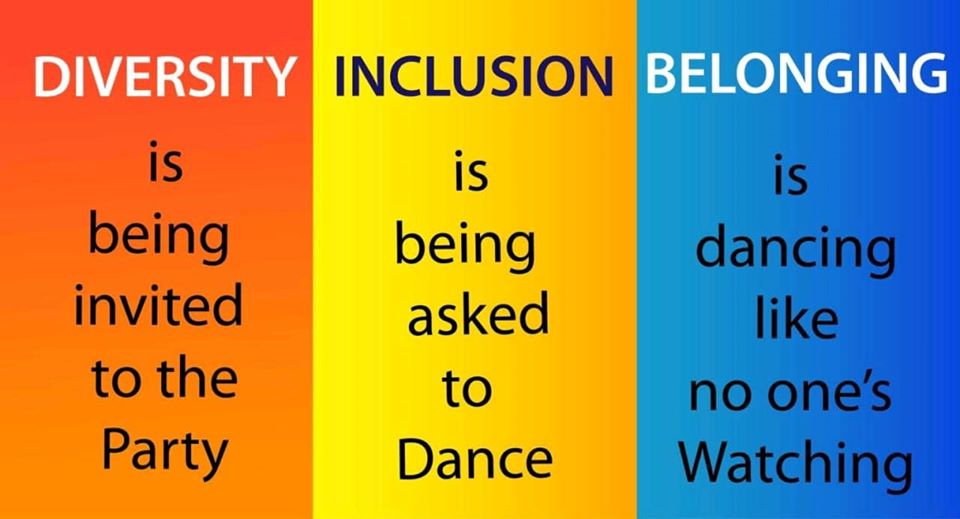
Diversity Equality And Inclusivity: This work is not something you just use to describe people; it’s used to describe actions and outcomes. That’s the potential!
You’re welcome. It’s my pleasure and honor. Let’s start the way that I often start. What is something that you have become aware of that people are not paying attention to? What has been the cost of that not paying attention?
Quite honestly, a lot of events that have transpired are surreal for me. They have been top-of-mind for a while. Did I see COVID coming? No. Most people didn’t. Did I see, at least in the United States, racial awakening coming? No. The things that both of those have in common are that they helped demonstrate, highlight, and illustrate how fragmented a lot of communities are, particularly the have and the have-nots, and how different social issues disproportionately affect different populations or groups of people to no fault of their own.
There’s the awakening, awareness, or a growing appreciation that those issues exist, but that’s still first base. Myself and many of my peers, colleagues, and friends are already on third base waving people home. The awareness gaps and why that matters is because awareness is step one. That’s the work and what is top-of-mind for me. That has been elevated.
I love the whole range of things that you pointed to. I gave a talk recently and one of the things that I was talking about is that, if you are White and more or less what’s generally considered middle class in America, it might have been easy before May 25th, 2020 to think, “We’ve got this race thing handled. We elected a Black man president. Twice! We’ve got it. It’s all fine.” And then the horrendous murder of George Floyd happened on May 25th, 2020. Suddenly, the conversation changed. It was what Malcolm Gladwell calls a tipping point. Suddenly, the conversation moved from, “That’s one bad racist cop,” to, “We have a systemic problem that many people had the privilege of not being aware of.”
Different social issues disproportionately affect different groups of people due to no fault of their own. Share on XSuddenly, it was like, “This has been happening all the time?!?!?”
Part of what’s been hard for many people about this is that we’ve had two major things happening at the same time. We’ve had this international pandemic that keeps feeling like maybe we’re approaching the end of it. This massive uncertainty. What are things going to look like on the other side of this in all kinds of different areas? Is there ever going to be an “other side of this?”
We’ve had that happening at the same time that we’ve had this awakening after the murder of George Floyd. The level of rethinking that has needed to happen and awareness that has suddenly been called forth in people is mind-boggling in many ways. At the same time, we have whole groups of people for whom, while the murder of George Floyd was horrendous, it wasn’t that much of anything new. You have whole groups of people who were like, “Yes. It’s Tuesday in America.”
That awareness that you’re talking about that many people have had the privilege of not being aware of and are suddenly waking up to is step one. First base. The question is how do we move from awareness to second base, third base, and then all the way home where you’re working on bringing us?
What do you get to do with the organizations you work with to help move them through a process from awareness about what has been happening in the community? These are not only the communities that you serve. These are the communities that you’re from. This is personal to you. How do you help move people from awareness to other levels of action and participation?

Unfortunately, the George Floyds of the world and the country are nothing new. Emmett Till was murdered in 1955. The marker for his gravesite, or at least where the body was found, is encased in bulletproof glass because it’s target practice and it’s continuously replaced. That’s not a new thing. A lot of these issues, unfortunately, aren’t anything new. I spent some time in Louisville a couple of weekends ago. I visited an exhibit at [the Speed Art] museum that commemorated the life and the movement behind [Breonna] Taylor. It was moving, just talking about it.
I happen to be close to it. I have some associations and involvement supportive of the Black Lives Matter movement. If you said that out loud, pre-’20, you were pretty much a terrorist. To see how, even LinkedIn changed their logo at the Pan-African colors on there. Those, to me, are surreal. I’m third base. That’s cool and cute. There’s DEI, JEDI, and too many QC terms to answer your question. I understand there’s benefit or value to categorizing it. To me, those are verbs, but unfortunately, they usually get spoken about as adjectives.
The verb means action. It’s action-oriented. It’s momentum. It’s doing something with it. In many ways, intentional and not certainly, there’s some intentionality behind keeping those as adjectives. Those are things that are better there when it comes to that work. There’s cancer. You say, “Beat cancer. F^ck cancer,” or it’s bleeped out. If you aren’t aware, nobody will bat an eye about that or homelessness in Starbucks, the grocery store. The real target of DEI always gets danced around and doesn’t get addressed. The origins of it are White supremacy and White privilege.
Those statements alone are controversial, even though that’s our country’s origins. That’s quite literally in Black and White. First, it’s acknowledging, at least my thinking on what I said, that work is action-oriented. You don’t use it to describe people, work, and outcomes. I’m from marginalized and challenged communities and that’s also where a bulk of my work where I do directly and/or they are the beneficiaries of the work that I do. I specifically work on social impact, which for me are things that help to change, improve, and sometimes even save people’s lives. Unfortunately, marginalized communities, particularly those of color, are the ones who are catching the wrong tail. That’s what we saw with COVID. COVID was the great equalizer, but many people got the worst of that and with other issues.
If someone can't say no, their yes means nothing. Share on XMy work looks like I help organizations connect their causes to communities. That looks like stakeholder outreach, community engagement, strategic planning, implementation, issue advocacy, and capacity building. I do public affairs and some people call it community engagement or public participation. That’s how I choose to categorize it. It’s mostly universal. I’m in the information and relationship business.
None of that happens overnight, but both require trust, integrity, and patience. Sometimes some clients or organizations might approach me. I primarily work with government philanthropic organizations and nonprofits, “What happened with George Floyd was terrible. We’re “woke” now. We would love to engage with the Black and Brown communities and we want to be their best friends and vice versa. Can you make that happen in a month?”
Even if it’s well-intended, it’s like a Vegas or Reno wedding.
It’s important to acknowledge that these communities have experienced trauma or not just experienced it. They’re experiencing trauma. Oftentimes, these organizations that I work with, their institution directly or what they represent and if it’s government or what have you, were the perpetrators. Sometimes it’s a tough conversation, but it’s necessary to manage expectations, give validity, and add effort and credibility to the work that I may be asked to do, which is managing those expectations that are not going to happen overnight.
It’s possible. If it wasn’t, I wouldn’t be doing this work but it’s a mountain to climb and to be intentional and own it. If not an organization you’re representing, maybe you look like or you are someone who is culpable for that. I don’t say this lightly, but it’s like an abusive relationship. You come and you bring flowers or a favorite gift to that other person, “Maybe I’ll sniff your flowers or eat your candy. Maybe I won’t. The fruit basket is nice.” That still does not absolve the trauma that led up to the incident. I know that was a lot there, but that’s my thinking around the work and at a high level of how I help bridge some of those gaps, more specifically for outcomes and ultimately impact that benefits those marginalized communities.
There were so many things in there. One was how much we all want change to happen fast. I am a human who has struggled with my weight for most of my life. If there were a magic diet pill out there, I would take it. That would transform me overnight and I wouldn’t have to worry about this anymore. That’s how we want life to be, “I’m having trouble with my kids, in my marriage, or at my job. Our organization wants to connect with this community and we want it to happen fast. Fix this NOW!”
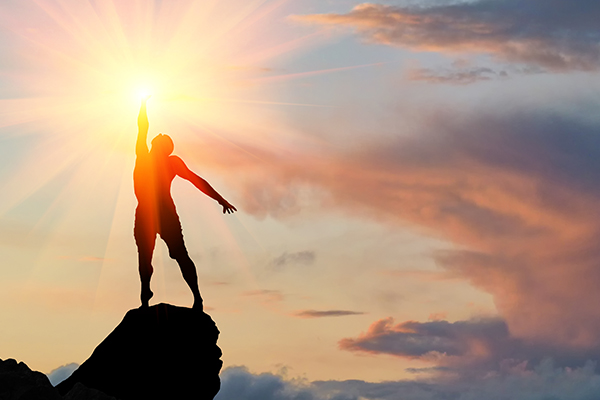
Diversity Equality And Inclusivity: We try to set organizations up for success.
I was working with a client who has a challenging relationship with the community in which they are located. There are some reasons for that. They want a much more productive relationship with the community, but they have no idea how to go about creating it. Even when we talk about community, sometimes what they’re talking about is people who live locally to where they are situated. Sometimes what they’re talking about are elected officials. These are not the same things. You’re talking about oranges and orangutans. These are very different entities that have very different experiences of your organization.
They were saying, “This one thing that you’re going to help us with, can this create trust?” I said, “This can’t create trust. Can it be part of what creates trust? Yes, but there is no magic wand.” Just like for most of us, we don’t meet somebody then marry them that day. We don’t develop trust overnight, especially when there has been harm inflicted. Whether I inflicted the harm or not is immaterial. I am of the group of the people who historically inflicted the harm, whether that is a philanthropic organization, municipality, White people, rich people, landowners, or whatever the group is.
How does that go when you are talking with the people who would like to hire you to wave a magic wand and have them be the community’s best friends? You say to them, “What you’re doing is interesting and important given who you are, but you’re not going to work for organizations or municipalities that are doing dirt.” You’re going to work for good organizations and good cities that are up to doing the right thing and want to authentically engage. You say to them, “Here’s the thing. It’s not going to happen in a month. Here are some of the reasons why.”
It may be things that you did or things that your predecessors did. It may be people who look like you who did those things that created this system that these other people have been living in. There are hurt feelings, bad experiences, and trauma there. To get up over that, it doesn’t happen overnight. How does that land with the folks that you’re talking to? How do you help move them forward on their journey?
If you don't address the elephant in the room, the work becomes tougher. Share on XI don’t work on every project. It’s not arrogance. I’m about doing the good work for the communities who ultimately benefit from it by good trouble. The organizations that I work with exist to service communities. I view my role as helping them to do that. However, I describe myself as an activist who happens to be a consultant. I share a fairly unique background with the grassroots community and organizing background. I also had involvement with legislative offices as well as a consultant. That’s the full picture. At the end of the day, I wear that I am an activist on my sleeve and shirt.
To me, the work of engagement, public affairs, or public participation, 90% of it is about the invitation. There’s a lot that goes into that and to be intentional with that, but that’s a starting point. A lot of times, an organization thinks what they need from the community are the people they like, the people who you’re not going to catch hell from, and the people you’re comfortable with. That’s called a birthday party where you can invite people, they show up, and they love you. There’s not much challenge in that. You’re not going to catch hell for that.
Community is different and it’s about the invitation. Shout-out to Cincinnati, my hometown. Peter Block is an internationally known community builder based out of Cincinnati. He says that “if someone can’t say no, their yes means nothing”. One of my favorite quotes is that. You might invite a community to participate in a process, a conversation, and an outcome. If they say no, a lot of times, they get written off. Maybe what they asked was half-hearted to begin with, but it’s a conversation. Conversations are continual. Back to the invitation analogy, you still want to give them the right of refusal. Maybe they will. We have friends or family members that we don’t like all that much. They’re not a friend. They have that wedding or birthday party and you aren’t going to go anyway because you know who you like, “Give me that right of refusal. I still want the invitation. At least acknowledge me. Maybe you don’t even know how I feel about you.”
I halfway joke with that, but I do think that is the respectful mentality. Many of these communities or individuals already have undue expectations of being subservient. I’m using the term invitation brightly. They’re not invitations. They’re their expectations and mandates, and maybe you didn’t even go about it the right way. All of that is important and it’s a very thorough process to help clients think through the who, why, and what. Oftentimes in public affairs work, you want to get to the when and where, “This is happening Tuesday!” That’s three days away and these people don’t show up. Then the organization decides, “They clearly don’t care.”

Diversity Equality And Inclusivity: Get in good trouble. 90% of it is about the invitation.
Those conversations are out there. It’s being thoughtful and intentional about the who, why, and what. The tone and spirit of whatever effort or project they ask for your participation on is not a mandate. The communities have already experienced that. Oftentimes, they were sanctioned by the very entities who might expect that shotgun wedding experience. I’m a big believer it’s all about the invitation. An invitation is not a mandate. To be thoughtful about the who, the why, and the what involved with engagement projects that I’m involved with, I take clients through a referral process to think that through.
To do the heavy lifting on the front end is still not overnight, but the rest of the process is going smoother. One other final thing on that point is I’m a consultant. I’m not going to be in the picture forever. I don’t like to set clients up in a game of racial Jenga, where as soon as New Reach is out of the picture, you knock that piece out, the whole thing collapses. That doesn’t do anyone any good. I try to set organizations up for success with that process so that it’s not reliant. I already know them oftentimes, not always, but that’s not breaking any new ground or having credibility with the audiences that you’re trying to reach. How can I help you do that? It’s not overnight, so that it is more of a relational process.
One of the things that I thought of when you were talking about that is my parents. Many years ago, when my dad first saw my mom, he invited her to go roller skating or ice skating. This was in the winter in North Carolina and she said no. He asked her to go bike riding and she said no. He asked three times before asking her to go to the movies and she said yes to the movies. He didn’t know that my mom can walk right up there with the best of them, but other than that, physical activities are not something that she’s interested in.
She was an all-star student and then went on to be a college instructor. The only D she had or even failed was bowling. My mother is not super coordinated with that stuff. It’s not her jam, but he kept asking her to do these active things because he didn’t know her yet. He kept getting a no… and then he found something where she could sit and that they could enjoy together. It has gone on to be a wonderful and happy marriage for lo these 60-plus years.
How often do we do that in the world? We ask people to do things without knowing them, understand their motivation, and connect to the why and all the preliminary questions you were asking that were so brilliant.
I love that you’re starting with, “Who is this community? Why would it make sense for them?” Forget about why we want to be engaged with them. Why would it make sense for them to be engaged with us?
Here’s one of the things that you and I have talked about in the realm of diversity work. For organizations that want to take it on, not just check a box, and do the work around it, it’s figuring out how this connects to our organizational mission, vision, and values. That can be transformative, and being able and willing to spend the time and resources.
I was talking with a group of chief diversity officers. That’s a job that didn’t use to exist. This is a group of people who are having enormous job turnover. They are the least tenured in the C-Suite by about half because they’re excited like, “I get to work on diversity. I’m going to help transform this organization.” They don’t get the resources and/or the access that they need. They don’t have the power that they need to transform things within an organization because the organization hasn’t done that pre-work to figure out, “Why do we care about this anyway?” If you’ve done that pre-work, and this is core to who you are, then you’re going to allocate the resources to make it work, and just like with trust and community engagement, it’s not going to be an overnight process. It’s going to be a long effort.
If you had a microphone to say something to everybody in the world, in the US, every organization that is working to engage with communities, or whoever you would love to reach, what is something that you would love for people to finally get, pay attention to, and put time, energy, and resources to? It’s a huge, life-changing and world-altering question. What’s a little thing that you would do, Coby?
This is specific to DEI. DEI is a verb, not an adjective.
It’s to shift that paradigm as far as what the work looks like in action. In the organizing world, an issue is a problem with a solution. When I say issue, that’s the thinking that I’m using behind it. It needs a culprit. With that work, that’s a tough conversation. You’re overcoming something. It’s the elephant in the room. Not addressing that makes the work tougher. That’s where you get movement. It’s acknowledging the elephant that is stomping in the room and knocking over the China cabinet.
In terms of a community, I think of it in macro, mezzo, and micro levels and acknowledge that there’s trauma that exists in certain communities. Oftentimes, if you’re doing that type of work, it’s to address an issue and acknowledge the origins of that. There’s a lot of resentment about not acknowledging resentment. I don’t think a lot of things are personal. They don’t know you personally or vice versa, but there’s resentment for lack of resentment. It comes down to respect, intentionality, and patience with the weighty topics that we’re talking about. Most of them didn’t happen overnight, so the solution won’t happen overnight.
Even if there are best intentions, it can be disrespectful to rush either of those along. If you’re passionate about the work, you want to be in it for the long haul. Most people wouldn’t buy a car that’s only going to last for a month, let alone do this very important work and expect it to be meaningful, credible, and lasting if the instantaneous mentality is as expected with it.
Transformation does not happen overnight. What ideas do you have around it? It’s hard for humans who acknowledge the pain that they’ve caused somebody else. It’s even trickier if it wasn’t you, personally. In some ways, it’s easier if it wasn’t you personally because you don’t have feelings of guilt. You’re not wrestling with your conscience, trying to protect your ego, doing all the things that the humans do and apologizing for things or owning things that you didn’t create. A lot of people have a really hard time with that. I’m not sure if it’s that they don’t understand why it’s important. What ideas do you have, what tricks have you developed, or what methodologies do you employ to try and help people figure out how to come to terms with apologizing and owning harm, whether they created it or not?
A lot of it starts with common ground, essentially. There’s that mutual agreement that we’re in December. We can’t talk about whether or not it’s cold or if it’s your favorite month if I’m thinking it’s December, you’re thinking it’s July. We’re not going to make much progress on that!
It can take different shapes and forms, but it comes down to some level of common ground. If you can’t establish that, then it’s an effort in futility. It doesn’t have to be on everything. It probably won’t be on everything. In most relationships, professional or personal, you’re not 100% on the same page with everything, but there’s still some common ground that you layer in advance from that. That’s where it starts from and not so much on either side. There are “sides” shoving it all in, especially if you’re not of that marginalized group. Certainly, that would not be appropriate. It sounds over-simplistic, however necessary, and clearly isn’t done enough, if at all as a starting point.
Most conflicts, battles, or wars start with some level of diplomacy. You don’t just send your nukes off, but there’s some level of that. It’s not, “They didn’t answer our email, letter, or phone call, so we’re going to blow them up.” That’s where the respect comes in because if they couldn’t say no, then their yes meant nothing. You won’t gain much ground that way.
This has been such a rich conversation. There are 800 different tendrils out there that we could continue to explore, but for the sake of our audience, I’m going to go ahead and wrap this up. It has been a delightful conversation. I want to make sure that people know how to find you, Coby. Do you call yourself the Executive Director? Are you the CEO? What are you?
New Reach and I are less pretentious, at least for my work type. I’m the Owner and Founder of New Reach Community Consulting.
That’s where you can find him. There’s going to be some people who want to reach out to you, Coby.
One final thing and my advice are to get in good trouble and get in necessary trouble. Shout-out to the late great, John Lewis. It’s for the greater good.
Amen. Remember, great leaders make great teams. Until next time.
Important Links:
About Coby Williams
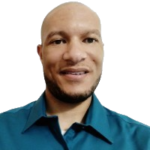 Coby C. Williams describes himself as an “activist who happens to be a consultant.” His background includes grassroots community organizing, legislative affairs, and consulting. He’s a newly appointed Board member of the International Association for Public Participation (IAP2) USA and active member of the National Network of Consultants to Grantmakers (NNCG).
Coby C. Williams describes himself as an “activist who happens to be a consultant.” His background includes grassroots community organizing, legislative affairs, and consulting. He’s a newly appointed Board member of the International Association for Public Participation (IAP2) USA and active member of the National Network of Consultants to Grantmakers (NNCG).
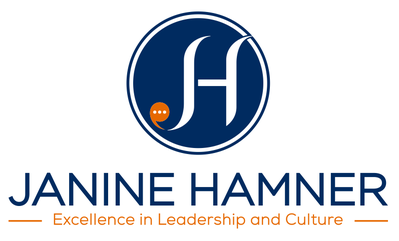

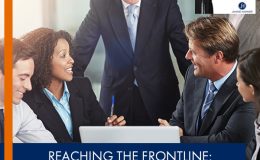


Israel Club
March 29, 2022 5:33 amMay I simply say what a relief to uncover somebody that really understands what theyre discussing over the internet. You certainly know how to bring a problem to light and make it important. More and more people really need to check this out and understand this side of the story. I was surprised that youre not more popular because you certainly have the gift.